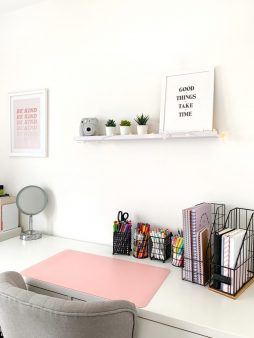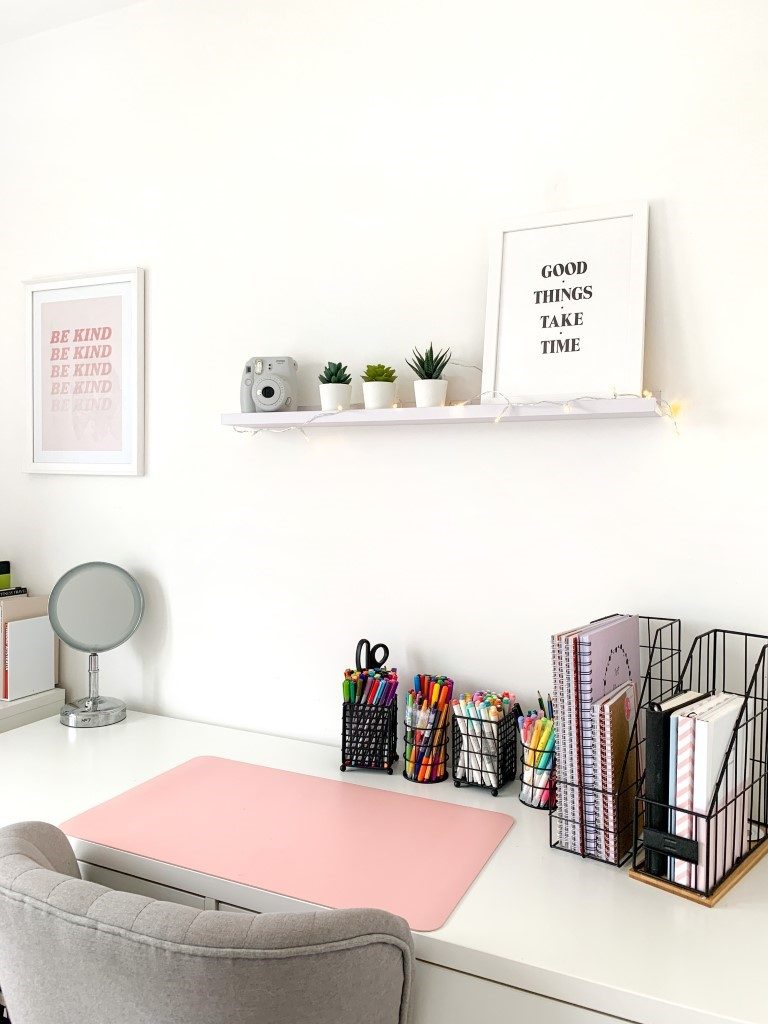Working from Home
9 September 2020
Working from home is something most of us hadn’t really experienced before COVID-19. However, with lectures starting to be taught through Zoom, and remote working becoming the new norm for a lot of people, it can be an overwhelming situation. Here are a few tips you can take on board to manage the situation!
Plan
At the start of each week take some time to plan what you’re going to be doing and when. Check your timetable to see what lectures, deadlines, and any other commitments you have and plot these down so you can plan your time around them.

Write a to do list for each day so you have a set list of tasks that need completing. This will also ensure that you don’t forget about anything and will keep you on the right track.
Routine
Establish a routine for those days that you’ll spend working from home. Get up around the same time as you usually would and do the usual things you’d do before heading out of the door. Take a walk and get some fresh air to allow you to feel motivated for the day ahead.
Try and set what hours you’re going to be working each day, remembering to factor in regular breaks.
Workspace
Being away from the library, our desks, and usual workspaces may make us feel a little deflated and unmotivated when it comes to carrying out our studies and any other work at home. However, creating a space in your home dedicated to your work and studies can do wonders.

Pick a quiet space and ensure that you have everything you need nearby. Aim to keep it clean, tidy and organised and try to avoid using this space when you’re having some down time.
Distraction
We’re surrounded by distraction, and we’re all guilty of spending hours procrastinating instead of getting on with work, whether it be endlessly scrolling through social media or getting hooked on a Netflix show. Being at home can make the situation a lot more difficult.
If you don’t need your phone, put it on silent and put it in a drawer nearby so you’re not tempted to pick it up. There are so many apps out there to help prevent distraction, and Forest is a great one where you set a timer to grow a tree – if you leave the app the tree will stop growing. You can also set timers for the amount of time you want to study for, and then when your next break approaches, you’ll know about it.
Discipline
It isn’t easy getting back into a routine and having self-discipline after such a long time away from our studies, but it’s such an important thing to acquire when working from home. There’s no one physically there to push you to get on with your work.
Ease yourself back in slowly and be strict with yourself, it’ll soon become a natural routine.
Breaks
It can be easy to get caught up in what you’re doing, and work hours on end without taking a break. Taking regular breaks will avoid burnout, preventing you from feeling unmotivated for the rest of the week.

Aim to get up and move around every 30 minutes or so, stretching your legs. Ensure that you’re staying hydrated, eating well and getting some fresh air during the day.
Stay Connected
Working from home can have its perks, but the thing that takes a toll on a lot of people is the lack of regular communication with others. It can be both lonely and isolating to work from home, whether you live on your own or not.
Staying connected is so important for our mental health. If you live in student accommodation, make sure to step out into the shared spaces a few times a day and chat with your fellow flat mates, everyone is in the same situation. Arrange to meet up with friends and family, and even arrange regular FaceTime calls to keep you engaged and in the loop.
Although we can’t meet up in study spaces or the library, reach out to fellow course mates and see if anyone is interested in arranging study sessions through Zoom. This way you can stay connected and in the loop for your degree at the same time.
Self-Care
Having our work life and personal life all in one area can be very overwhelming and can take a toll on our mental health. Putting some time aside each day to do something for yourself is so beneficial, whether that be something like a bath, a walk around a local park or something as simple as binge-watching your favourite show.
It can be a difficult time for a lot of people, so if you are struggling please ensure you reach out to friends, family or any other support networks which are situated within the university.
I hope the blended approach to learning this year goes well for everyone!